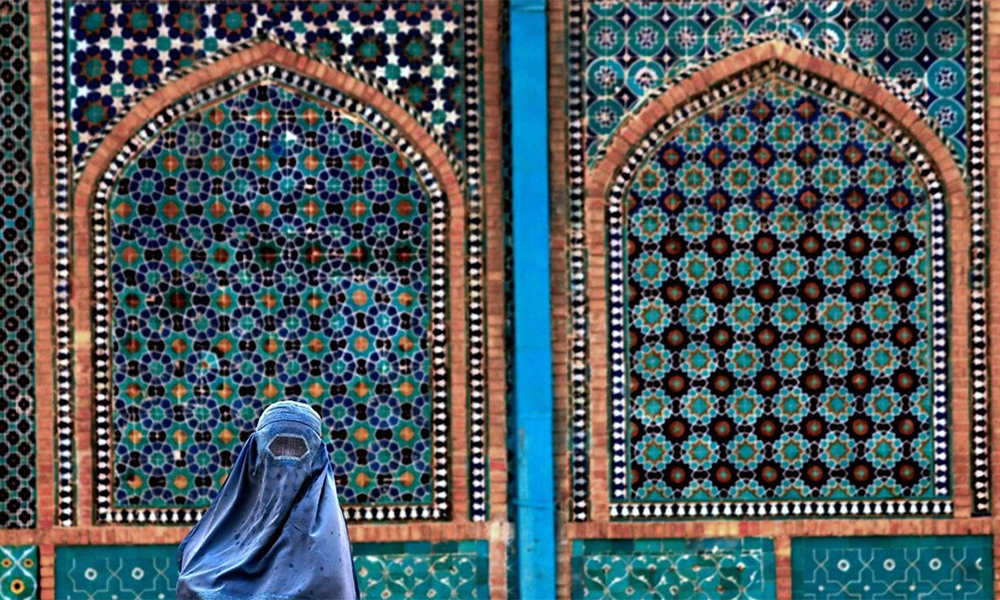Latest News
Mandatory burqa decision by IEA sparks widespread reaction

The Islamic Emirate of Afghanistan’s (IEA) order Saturday for women to wear a burqa in public has sparked widespread reaction from around the world.
Among thse who have expressed concern are the United Nations Assistance Mission in Afghanistan (UNAMA), the UN’s Secretary-General Antonio Guterres, and the US special envoy for Afghan women Rina Amiri.
In response to the decree, UNAMA said in a press release that the decision, which is a formal directive rather than a recommendation, contradicts the IEA’s pledges to respect human rights especially the rights of girls and women in Afghanistan.
The Ministry of Promotion of Virtue and Prevention of Vice on Saturday announced that women in Afghanistan must be covered from head to toe and should not leave homes unless necessary.
The decree was issued by the IEA’s Supreme Leader Mullah Haibutullah Akhundzada.
UNAMA said that over the past two decades the IEA has pledged to uphold Afghan women’s rights to education and work.
“These assurances were repeated following the Taliban (IEA) takeover in August 2021, that women would be afforded their rights, whether in work, education, or society at large,” UNAMA’s statement read.
UNAMA has meanwhile asked the IEA to provide further clarification on their decision.
Meanwhile, the US State Department has expressed concern about the IEA’s latest decree, saying the Islamic Emirate’s actions against women and human rights issues have a negative impact on their relationship with the international community.
A state department spokesman said the legitimacy that the IEA seeks from the international community is directly linked to their conduct, especially towards women and girls.
The US special envoy for Afghan women Rina Amiri meanwhile said in a Twitter post that the IEA has been suppressing Afghan women and girls rather than addressing the country’s economic and political crises.
The UN Secretary-General Antonio Guterres also expressed concern over the decision adding that the IEA must abide by international law in assuring the rights of Afghan women and girls.
The Ministry of Promotion of Virtue and Prevention of Vice said Saturday that 99 percent of Afghan women and girls currently observe Islamic hijab and that the decree pertains to the remaining one percent.
Mohammad Naeem, Spokesman of the IEA’s Political Office, said in a series of tweets that according to international law, every society has the right to live in the light of its values and beliefs.
Hijab is a symbol of Afghan society and an important value, Naeem said.
According to Naeem, “no one can represent another community, the leaders of each community are the representatives of their community.”
Latest News
Continued aid to Afghanistan vital for regional security: Kazakh president

Kazakhstan’s President Kassym-Jomart Tokayev has emphasized the continuation of humanitarian assistance to Afghanistan, stating that the ongoing provision of such aid plays an important role in ensuring regional security.
Speaking at the international conference “Peace and Trust” in Ashgabat, the capital of Turkmenistan, Tokayev described addressing complex humanitarian challenges and the reconstruction of Afghanistan as a necessity.
“To ensure regional security, we consider it essential to continue providing assistance to Afghanistan, including by strengthening international efforts to address complex humanitarian issues and the reconstruction of this country. Kazakhstan remains committed to supporting the people of Afghanistan through humanitarian aid, educational projects, trade development, and food security initiatives,” he said.
Meanwhile, experts believe that sustainable improvement of the humanitarian situation in Afghanistan requires broad cooperation from the international community and support for the country’s economic development.
“Investment can be defined as one of the fundamental drivers of the economic cycle, and whenever Afghan traders do not take their money out of the country and instead invest domestically, it naturally leads to greater growth and dynamism in Afghanistan’s economy,” said Abdul Zahoor Modabber, an economic analyst.
As the humanitarian crisis in Afghanistan continues, reports by international relief organizations indicate that millions of citizens of the country are in urgent need of food, health, and livelihood assistance.
The reduction in funding for aid organizations, the impacts of climate change, and the return of migrants have increased concerns about a further deterioration of the humanitarian situation in the country.
Latest News
Islamic Emirate declines to attend Tehran meeting on Afghanistan
Latest News
Sirajuddin Haqqani: A government that intimidates its people is not a true government

Khalifa Sirajuddin Haqqani, Minister of Interior of the Islamic Emirate of Afghanistan, said during a visit to Khost province on Friday that any government which rules through fear cannot be considered a true government.
“A government is one that is loved by its people, one that serves them with respect and compassion, and from whose behavior people learn ethics and sincerity,” he said.
Haqqani also stressed that Afghans who opposed the Islamic Emirate in the past should be tolerated and treated in a way that helps eliminate hostility and animosity, paving the way for national cohesion.
-

 Sport4 days ago
Sport4 days agoILT20: Desert Vipers edge Gulf Giants in historic super over thriller
-

 Latest News2 days ago
Latest News2 days agoMuttaqi: Afghanistan’s progress requires both religious and modern education
-

 Regional4 days ago
Regional4 days agoSix Pakistani soldiers killed in TTP attack in Kurram District
-

 Business4 days ago
Business4 days agoTrade bodies warn almost 11,000 Afghan transit containers stuck at Karachi port
-

 World4 days ago
World4 days agoPowerful 7.6 earthquake hits northern Japan, tsunami warnings issued
-

 Latest News3 days ago
Latest News3 days agoTrump calls Afghanistan a ‘hellhole’ country as US expands immigration restrictions
-

 Sport5 days ago
Sport5 days agoSorkh Poshan Khafi defeats Sarsabz Yashlar 4-0 in Afghanistan Champions League
-

 Sport3 days ago
Sport3 days agoCommanding wins for Arman FC and Sarsabz Yashlar in Afghanistan Champions League

























